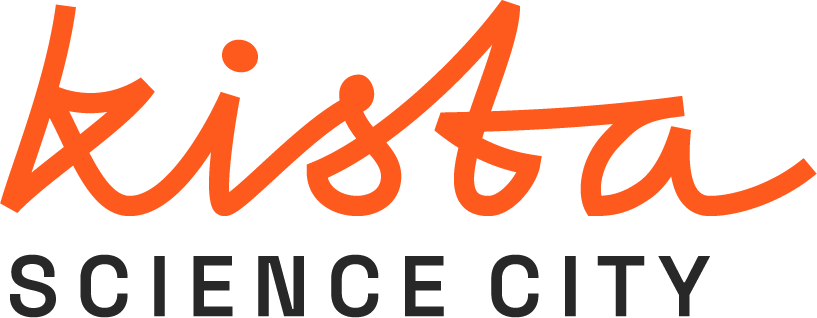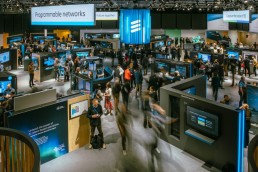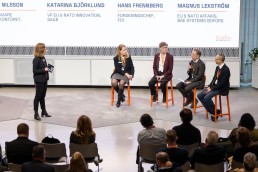Digital twins & real-wold impact
In a world of rapid tech advancements, Kista’s tech ecosystem spearheads digital twin advancement, with numerous companies and research teams pushing technological boundaries and demonstrating real-world applications across urban development and environmental sustainability.
The mix of digital twin projects underscores the importance of collaboration in driving new tech advancements. Within this ecosystem, a multitude of local research initiatives, and market- and government-driven projects are interconnected through overlapping project and reference groups. Datasets are shared among these projects to enrich the digital twins with diverse perspectives, enhancing their utility and scope, and creating an innovative arena for idea exchange and discoveries. This collaborative environment not only accelerates technological progress but also strengthens Kista’s role in hosting and fostering transformative projects in this field.
The potential of digital twins
A digital twin is a dynamic replica of a physical entity or system, bridging the physical and virtual worlds through data and simulation. This enables businesses and researchers to understand complexities, predict future conditions, and make informed decisions in real time.
Digital twins are applied in areas like urban planning, infrastructure, healthcare and manufacturing, offering unique insights into system performance and environmental impact. Lucas Uhlén, project leader at Kista Science City, highlights the practical benefits of these technologies, saying: ”Just as a shared blueprint guides everyone from plumbers to electricians in a building project, digital twins achieve a similar unity. They bring cross-disciplinary teams onto the same page, ensuring projects evolve smoothly from concept to integration. This approach fosters a common understanding of a challenge and its dependencies, which is vital for aligning diverse expertise and streamlining the development and maintenance of complex solutions.”
Spotlight on digital twin projects
Kista is home to several initiatives that showcase the practical applications and benefits of digital twins. From enhancing urban planning to optimizing environmental sustainability, these projects represent the cutting edge of digital twin solutions:
Digital Vision Kista, a collaborative partnership including the City of Stockholm, KTH, Ericsson, RISE, and Kista Science City, is pioneering the development of a visual 3D model for the Kista area. By integrating data from building plans, environmental sensors, and traffic patterns, this digital twin visualizes traffic flows and infrastructural changes. It offers valuable insights for traffic management and building energy needs throughout various stages of construction and use. The project aims to transform IoT sensor data into actionable insights for municipalities, demonstrating a model for leveraging digital twins in sustainable urban development and aligning with Agenda 2030 objectives.
Project Gemini is a collaboration between MIT and KTH through the Senseable Stockholm Lab, focusing on the impact of traffic flows on emission levels. Through the integration of emission sensors and traffic data, the project seeks to understand and mitigate environmental impacts in urban settings. This initiative illustrates how local synergies and shared data platforms can significantly contribute to developing sustainable urban environments.
Digital Vision Sverige, led by RISE, is an initiative to advance digital twin development across Sweden’s urban planning sector. By integrating data from multiple sources, digital twins offer a comprehensive view of urban landscapes, facilitating better planning, decision-making, and collaboration. This initiative aims to foster a resilient society prepared to face climate change, green transitions, and future crises through informed, data-driven strategies.
Synergies and collaboration
As the exploration and expansion of digital twins continue, Kista emerges as a focal point for this technological progress. Recognized by municipalities, academia, and industry alike as a natural hub for innovation, Kista facilitates a collaborative environment for knowledge exchange and the development of testbeds. In doing so, it plays an important role in realizing the potential of digital twins for the benefit of society and people.
Do you want to know more about Kista’s platform for testing and development of digital twins? Reach out to Lucas Uhlén at Kista Science City.
Related Articles
March 27, 2024
Mobile world congress 2024
The annual world-leading event brings together industry leaders and innovators…
March 27, 2024
Civil tech to power up defence
Securing funding and market fit can be challenging for startups. Partnering…
March 7, 2024
Safety in the digital age
Emerging technologies and collaborative models hold promise in addressing the…



